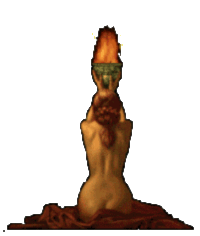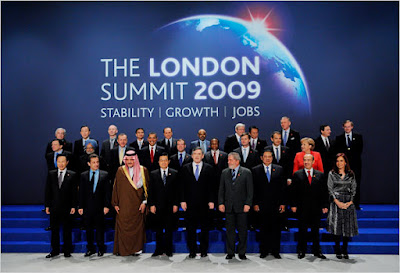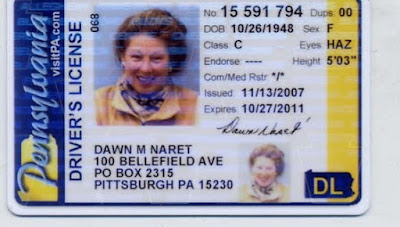Monday, July 02, 2007
EXIBIT #3 ADDENDUM TO MOTION TO REMAND OR REVERSE
EXIBIT #3 ADDENDUM TO MOTION TO REMAND OR REVERSE
**CONTACT DAWN NARET' AND LINK TO OTHER WEB SITES:**
MAIL: P.O. BOX 2315, PITTSBURGH, PENNSYLVANIA
USA 15230-2315
EMAIL:
dnaret@gmail.com
Reply2dn@gmail.com
dawnaret@yahoo.co.uk
WEB SITES:
http://www.subatomicquantumhumor.blogspot.com "SUB ATOMIC QUANTUM HUMOR"
http://www.dawnnaret.blogspot.com/ “WE THE PEOPLE”
http://www.chagrinning.blogspot.com/ “CHAGRINNING”
http://www.dawnnaret.wordpress.com/ “BUDDY, CAN YOU SPARE A LATTE ?”
http://www.dawnnaret.blog.com/ “58 YEAR OLD NATURAL-BORN LADY”
ADDENDUM TO:
MOTION TO REMAND OR REVERSE WITH PREJUDICE
CASE NO. 1742 CD 2004
SUBMITTED NOVEMBER 10, 2004
APPENDED NOVEMBER 14, 2004
BY DAWN M. NARET', ATTORNEY FOR THE APPELLANT
On April 21, 2004, during the original hearing, the claimant called into the office with a question on directions and was told that the hearing had already started and she would not be able to attend. She requested a continuance of a few minutes until she could arrive and the denial was repeated that the hearing had already started and she would not be able to attend.
Within minutes, she called back, a second time and requested permission to at least drop-off a written testimony, with supporting documents of evidence, that she wished to present and have considered before a final decision.
This request was also denied and she was told that she would have an opportunity to present written testimony in an appeal to the Unemployment Compensation Board of Review (UCBR), if the referee decided in favor of the employer.
I hold this interactive incident as further evidence of prejudice that has been unjustly obstructing the right to due process and a fair hearing, without prejudice, as required to be conducted by the UCBR.
May I repeat VANN v. UCBR 508 Pa 139, 494 A2d 1081 (1985):
"ALTHOUGH THE HEARINGS ARE INFORMAL, THEY INVOLVE SWORN TESTIMONY, CROSS-EXAMINATION AND RECORDING OF THE PROCEEDINGS. AN ADMINISTRATIVE TRIBUNAL IS NOT BOUND BY ALL THE EVIDENTIARY AND PROCEDURAL RULES OF A LAW COURT, SO LONG AS CERTAIN FUNDAMENTAL RIGHTS ARE HONORED, INCLUDING THE RIGHT TO A FAIR HEARING IN ACCORDANCE WITH DUE PROCESS OF LAW.
The claimant appeals to this honorable court to acknowledge, in their conclusion, that where opinions and policies have, on several occasions, agreed that if an employer is absent from the hearing, then the available record, which is usually the initial fact-finding plus the additional written testimony and material evidence, mailed in by the employer, as reasons why they are appealing an initial determination of eligibility, will be enough information in the record for the referee to evaluate and make a final decision, even in the absence of the employer.
The charge of prejudice lies in the acceptance of the additional written testimony, with any material evidence, that has been mailed-in and accepted into the record, in the absence of the employer, to be considered before a final decision by the referee.
If then, the employer has been given the opportunity to mail-in additional written testimony and material evidence, to be entered into the record before a final decision, even in his/her absence, then the same situation, from the aspect of the claimant, where the claimant is absent from the hearing, and the referee is permitted to conduct the hearing in their absence and determine a final decision based upon the available record, which includes the written testimony and material evidence mailed-in, by the employer, with their petition for an appeal, then the claimant, who is absent, is not being given the same opportunity for a fair hearing unless they are also afforded the same opportunity to deliver or mail-in written testimony as the employer did.
A final decision, where the employer was afforded the opportunity to add additional written testimony to the record and the claimant was denied or not offered the same opportunity, is a final decision formed with prejudice, and the claimant has not been offered the opportunity for a fair hearing.
Due process has then been violated if the final decision is made in the absence of the claimant and a continuance has been denied. Also, the employer was not obligated to prove "proper cause" for being absent, in order to have his/her written testimony accepted into the record prior to the final decision, and neither can the claimant be demanded to prove, "proper cause" for absence, before being afforded an opportunity for submitting a written testimony.
The absence of a claimant does not waive the right to due process and a Fair Hearing. Therefore, having a hearing scheduled, where they could not attend, was NOT giving them full opportunity for a fair hearing, if the opportunity for submission of written testimony, to be evaluated before a final decision has been made, has been denied.
The referee is obligated to decide these cases on their merit, according to the information available in the record. If that information is unjustly accepted from one party and not the other party, then the merit is not fairly determinable, if the referee is evaluating, with prejudice, the record of only one party.
The opportunity to submit written testimony cannot be denied to the claimant, if it is not denied to the employer. A final decision must include additional written testimony, of the claimant, if it accepts additional written testimony of the employer.
The initial fact-finding affords the employer an initial testimony written into the record. The employee is notified of the fact-finding comments, of the employer, in the initial determination letter from the Unemployment Compensation Department (UC Dept.).
The employee is NOT given an opportunity to cross-examine or rebutt any of these comments. If the UC Dept. determines that the employee is eligible for benefits, the employer is afforded the opportunity to appeal the determination and is given a SECOND opportunity in stating reasons why they seek appeal and to attach any material evidence they wish to have accepted into the record. The employee is not given an opportunity to cross-examine or rebutt any of these new comments either, until the hearing.
If the employee cannot attend the hearing, then there are TWO mailed-in written testimonies of the employer and NONE from the employee, to be evaluated according to merit. What is going to be evaluated? It is a ONE-SIDED, PREJUDICED EVALUATION PROCESS.
Now, if there is yet the attendance of the employer, with or without accompanying witnesses, giving oral testimony, objecting to the eligibility of benefits, in the absence of the employee, then the merit, of the record, now contains at least THREE and possibly more testimonies, if witnesses were present, from the employer and NONE from the employee.
In both situations, where the employer is absent or not absent, the record is unjustly tipped in favor of the employer and is obviously being evaluated with prejudice, if it is evaluated without at least ONE opportunity, for even ONE written testimony to be entered into the record, from the employee, in the event of their absence from the physical hearing. They clearly have NOT been afforded the opportunity of a fair hearing.
The obligatory evaluation, without prejudice, by the referee, before making a final decision, cannot be waived by the referee, by the claimant, by the employer or by the UCBR, who are also obligated to assure the opportunity for a fair hearing and order a continuance if there is any doubt that this was accomplished at the referee's hearing. A ONE-SIDED, PREJUDICED EVALUATION PROCESS is definitely cause to doubt that a fair hearing was indeed afforded.
It is a Constitutional Right to due process, without prejudice, and it is a Fundamental Right that the UCBR is obligated to be consistent with in their policymaking, according to, again I would like to reiterate: VAN V. UCBR 508 PA 139, 494 A2d 1081 (1985), "SO LONG AS CERTAIN FUNDAMENTAL RIGHTS ARE HONORED, INCLUDING THE RIGHT TO A FAIR HEARING IN ACCORDANCE WITH DUE PROCESS OF LAW."
These Fundamental Rights, even in an informal UCBR setting, were already upheld by the Supreme Court in; DILLIPLAIN v. LEHIGH VLY. TRUST CO. 457 PA 255, 322 A2d 114 (1974). AND DILLIPLAIN WAS LATER SPECIFICALLY EXTENDED TO COVER UCBR PROCEEDINGS IN WING v. UCBR.
IN WING v. UCBR 496 PA 113, 436 A2d 179 (1981), the Supreme Court advised the UCBR to, "DISCARD THE DOCTRINE". The Supreme Court explained the rationale for "DISCARDING THE DOCTRINE", (the doctrine of Fundamental error) by noting; " THE ADMINISTRATIVE LAW TRIBUNAL MUST BE GIVEN THE OPPORTUNITY TO CORRECT ITS ERRORS AS EARLY AS POSSIBLE; DILIGENT PREPARATION AND EFFECTIVE ADVOCACY, BEFORE THE TRIBUNAL, MUST BE ENCOURAGED BY REQUIRING THE PARTIES TO DEVELOPE COMPLETE RECORDS AND ADVANCE ALL LEGAL THEORIES AND THE FINALITY OF THE LOWER TRIBUNAL'S DETERMINATIONS MUST NOT BE ERODED BY TREATING EACH DETERMINATION AS A PART OF A SEQUENCE OF PIECEMEAL ADJUDICATIONS." – Id, @ 117, 436 A2d @ 181. "SUCH RATIONALE CONTINUES TO BE SOUND."
They are to make every effort to investigate thoroughly by NOT erroneously denying a continuance, but are instead to grant a continuance more readily in order to create a complete record, so that they can be, "GIVEN THE OPPORTUNITY TO CORRECT ITS ERRORS AS EARLY AS POSSIBLE." How can they correct their errors, if they dismiss due process and send the unsatisfied party into a higher appeals arena, still trying to receive correction on a fundamental error made at the referee level? Or repeated at the UCBR level?
The SEQUENCUAL PIECEMEALING OF ADJUDICATIONS, is the error of forming a denial based on one issue, where a second issue forbids denial. This case has not been thoroughly investigated, assembled into a complete record or judicially resolved, whatsoever, and cannot avoid being remanded or reversed for violation of due process.
IE: A claimant, absent at a hearing, is denied a continuance and is claiming that there was not fair and equal opportunity to present equal testimony into the written record, which served as the basis for evaluating the merit according to available information. The UCBR upheld the referee's denial of benefits, stating that the claimant was absent and did not give "proper cause" for the absence and was already afforded the opportunity for a fair hearing. –ISSUE #1
IE: The same claimant, absent at the hearing where there is a charge of willful misconduct, and the employer did not satisfy the Burden of Proof, for willful misconduct. A continuance, affording further testimony and evidence are refused, because the claimant was absent and was already afforded the opportunity for a fair hearing, then the UCBR is repeating the error of the referee in forming a denial based on ONE issue where another issue, willful misconduct ISSUE #2, forbids denial.
They cannot deny benefits because a claimant was absent at a hearing. The absence is issue #one and absence is not an acceptable reason to deny benefits. The issue #TWO compounds the error, with the evidence that the employer never satisfied the Burden of Proof with testimony on the willful misconduct charge. This is a SECOND issue that forbids the denial of benefits "where the employer has not proven willful misconduct".
These are examples of exactly what the Supreme Court was referring to when it advised the UCBR to, "DISCARD THE DOCTRINE".
The UCBR did in fact attempt to violate the findings of the Supreme Court and present a, SEQUENCE OF PIECEMEAL ADJUDICATIONS, in denying on ISSUE #1 and neglecting on ISSUE #2. The UCBR neglected to consider the sworn testimony of the employer's witness, who under oath, denied that the reason for termination was willful misconduct.
The claimant was absent from the hearing, so a denial of benefits was upheld, by the UCBR, and the failure of the employer to prove willful misconduct was neglected and permitted to be buried below the absence issue even though it is forbidden to be present in a denial decision.
The Supreme Court already determined that these UCBR policies and procedures and dismissals and denials are violations of Fundamental Rights and advised that these doctrines be discarded in 1981.
Therefore, in every instance since 1981, where the UCBR has upheld a denial for benefits and has denied a request for continuance, due to the absence of a claimant, in a willful misconduct setting, even where the "Burden Of Proof" of willful misconduct, in the full definition as judicially defined, was not satisfied by the employer, they have been in violation of a Supreme Court decision and advisement, to void these policies (DISCARD THE DOCTRINE) THAT INHIBIT THE REQUIREMENT THAT THEY DEVELOP COMPLETE RECORDS AND ADVANCE ALL LEGAL THEORIES.
TO SUMMARIZE:
They CANNOT refuse a continuance due to absence from the original hearing,
They CANNOT refuse written testimony, from an absent party, to be accepted into the record, if they have accepted it from the opposing party, for evaluation before a final decision,
They CANNOT uphold an adverse decision, in a willful misconduct setting, where the "burden of proof" was not satisfied,
They CANNOT refuse or uphold a refusal for continuance, where an absent party has had NO opportunity to give ANY testimony, neither written or verbal,
They CANNOT repeatedly refuse to re-open cases or accept additional evidence, merely due to the objection of a re-opening, by the opponent, where the opponent's objection would be obstructing the right to due process if the objection is not over-ruled and the request is not granted.
These conclusions are NOT open for discussion or dispute. They have already BEEN decided by the SUPREME COURT.
Also, accepting that we cannot enable the possibility of blatant disregard of a Notice of Hearing, we must also consider that an absence, although entitled to present written testimony to be evaluated before a final decision, does already carry a consequence, in that the absent party is not able to witness the proceedings and is therefore, unable to cross-examine or rebut during the hearing.
They do not become aware of testimony presented unless they request transcripts and records of the hearing, which are to be made available with the absence of either party, in order to prepare an appeal, and they should be informed of this availability. If they have testimony and evidence to present, that would be relevant to the decision, they suffer a delay in the opportunity for rebuttal, but a continuance and that opportunity for rebuttal is required by Law.
Any policies proposed by the UCBR and approved as amendments to PA Codes and Statutes must meet the criteria test of consistency; that "CERTAIN FUNDAMENTAL RIGHTS ARE HONORED, INCLUDING THE RIGHT TO A FAIR HEARING IN ACCORDANCE WITH DUE PROCESS OF LAW.".
Violation of this obligation is now verified by the Commonwealth Court and the supremacy of its opinion over the policies of the UCBR, plus the support of those just opinions by the Supreme Court, will nullify the standing, credibility and acceptance of these policies, as arguments that would DISREGARD the decision by the Supreme Court, if they do not pass the criteria test of consistency to Basic and Fundamental rights, as already demanded and clarified by the Supreme Court, and now I must request that it also be supported, reiterated and upheld by the Commonwealth Court of Pennsylvania. (end of addendum)
AUTHOR: DAWN NARET'
2-28-07 author update: Current Contact Info:
Dawn Naret'
P.O.Box 2315, Pittsburgh, Pa. 15230-2315
Email: reply2dn@gmail.com OR dawnaret@yahoo.co.uk
Blogsites: http://www.dawnnaret.wordpress.com
http://www.dawnnaret.wordpress.com
**CONTACT DAWN NARET' AND LINK TO OTHER WEB SITES:**
MAIL: P.O. BOX 2315, PITTSBURGH, PENNSYLVANIA
USA 15230-2315
EMAIL:
dnaret@gmail.com
Reply2dn@gmail.com
dawnaret@yahoo.co.uk
WEB SITES:
http://www.subatomicquantumhumor.blogspot.com "SUB ATOMIC QUANTUM HUMOR"
http://www.dawnnaret.blogspot.com/ “WE THE PEOPLE”
http://www.chagrinning.blogspot.com/ “CHAGRINNING”
http://www.dawnnaret.wordpress.com/ “BUDDY, CAN YOU SPARE A LATTE ?”
http://www.dawnnaret.blog.com/ “58 YEAR OLD NATURAL-BORN LADY”
ADDENDUM TO:
MOTION TO REMAND OR REVERSE WITH PREJUDICE
CASE NO. 1742 CD 2004
SUBMITTED NOVEMBER 10, 2004
APPENDED NOVEMBER 14, 2004
BY DAWN M. NARET', ATTORNEY FOR THE APPELLANT
On April 21, 2004, during the original hearing, the claimant called into the office with a question on directions and was told that the hearing had already started and she would not be able to attend. She requested a continuance of a few minutes until she could arrive and the denial was repeated that the hearing had already started and she would not be able to attend.
Within minutes, she called back, a second time and requested permission to at least drop-off a written testimony, with supporting documents of evidence, that she wished to present and have considered before a final decision.
This request was also denied and she was told that she would have an opportunity to present written testimony in an appeal to the Unemployment Compensation Board of Review (UCBR), if the referee decided in favor of the employer.
I hold this interactive incident as further evidence of prejudice that has been unjustly obstructing the right to due process and a fair hearing, without prejudice, as required to be conducted by the UCBR.
May I repeat VANN v. UCBR 508 Pa 139, 494 A2d 1081 (1985):
"ALTHOUGH THE HEARINGS ARE INFORMAL, THEY INVOLVE SWORN TESTIMONY, CROSS-EXAMINATION AND RECORDING OF THE PROCEEDINGS. AN ADMINISTRATIVE TRIBUNAL IS NOT BOUND BY ALL THE EVIDENTIARY AND PROCEDURAL RULES OF A LAW COURT, SO LONG AS CERTAIN FUNDAMENTAL RIGHTS ARE HONORED, INCLUDING THE RIGHT TO A FAIR HEARING IN ACCORDANCE WITH DUE PROCESS OF LAW.
The claimant appeals to this honorable court to acknowledge, in their conclusion, that where opinions and policies have, on several occasions, agreed that if an employer is absent from the hearing, then the available record, which is usually the initial fact-finding plus the additional written testimony and material evidence, mailed in by the employer, as reasons why they are appealing an initial determination of eligibility, will be enough information in the record for the referee to evaluate and make a final decision, even in the absence of the employer.
The charge of prejudice lies in the acceptance of the additional written testimony, with any material evidence, that has been mailed-in and accepted into the record, in the absence of the employer, to be considered before a final decision by the referee.
If then, the employer has been given the opportunity to mail-in additional written testimony and material evidence, to be entered into the record before a final decision, even in his/her absence, then the same situation, from the aspect of the claimant, where the claimant is absent from the hearing, and the referee is permitted to conduct the hearing in their absence and determine a final decision based upon the available record, which includes the written testimony and material evidence mailed-in, by the employer, with their petition for an appeal, then the claimant, who is absent, is not being given the same opportunity for a fair hearing unless they are also afforded the same opportunity to deliver or mail-in written testimony as the employer did.
A final decision, where the employer was afforded the opportunity to add additional written testimony to the record and the claimant was denied or not offered the same opportunity, is a final decision formed with prejudice, and the claimant has not been offered the opportunity for a fair hearing.
Due process has then been violated if the final decision is made in the absence of the claimant and a continuance has been denied. Also, the employer was not obligated to prove "proper cause" for being absent, in order to have his/her written testimony accepted into the record prior to the final decision, and neither can the claimant be demanded to prove, "proper cause" for absence, before being afforded an opportunity for submitting a written testimony.
The absence of a claimant does not waive the right to due process and a Fair Hearing. Therefore, having a hearing scheduled, where they could not attend, was NOT giving them full opportunity for a fair hearing, if the opportunity for submission of written testimony, to be evaluated before a final decision has been made, has been denied.
The referee is obligated to decide these cases on their merit, according to the information available in the record. If that information is unjustly accepted from one party and not the other party, then the merit is not fairly determinable, if the referee is evaluating, with prejudice, the record of only one party.
The opportunity to submit written testimony cannot be denied to the claimant, if it is not denied to the employer. A final decision must include additional written testimony, of the claimant, if it accepts additional written testimony of the employer.
The initial fact-finding affords the employer an initial testimony written into the record. The employee is notified of the fact-finding comments, of the employer, in the initial determination letter from the Unemployment Compensation Department (UC Dept.).
The employee is NOT given an opportunity to cross-examine or rebutt any of these comments. If the UC Dept. determines that the employee is eligible for benefits, the employer is afforded the opportunity to appeal the determination and is given a SECOND opportunity in stating reasons why they seek appeal and to attach any material evidence they wish to have accepted into the record. The employee is not given an opportunity to cross-examine or rebutt any of these new comments either, until the hearing.
If the employee cannot attend the hearing, then there are TWO mailed-in written testimonies of the employer and NONE from the employee, to be evaluated according to merit. What is going to be evaluated? It is a ONE-SIDED, PREJUDICED EVALUATION PROCESS.
Now, if there is yet the attendance of the employer, with or without accompanying witnesses, giving oral testimony, objecting to the eligibility of benefits, in the absence of the employee, then the merit, of the record, now contains at least THREE and possibly more testimonies, if witnesses were present, from the employer and NONE from the employee.
In both situations, where the employer is absent or not absent, the record is unjustly tipped in favor of the employer and is obviously being evaluated with prejudice, if it is evaluated without at least ONE opportunity, for even ONE written testimony to be entered into the record, from the employee, in the event of their absence from the physical hearing. They clearly have NOT been afforded the opportunity of a fair hearing.
The obligatory evaluation, without prejudice, by the referee, before making a final decision, cannot be waived by the referee, by the claimant, by the employer or by the UCBR, who are also obligated to assure the opportunity for a fair hearing and order a continuance if there is any doubt that this was accomplished at the referee's hearing. A ONE-SIDED, PREJUDICED EVALUATION PROCESS is definitely cause to doubt that a fair hearing was indeed afforded.
It is a Constitutional Right to due process, without prejudice, and it is a Fundamental Right that the UCBR is obligated to be consistent with in their policymaking, according to, again I would like to reiterate: VAN V. UCBR 508 PA 139, 494 A2d 1081 (1985), "SO LONG AS CERTAIN FUNDAMENTAL RIGHTS ARE HONORED, INCLUDING THE RIGHT TO A FAIR HEARING IN ACCORDANCE WITH DUE PROCESS OF LAW."
These Fundamental Rights, even in an informal UCBR setting, were already upheld by the Supreme Court in; DILLIPLAIN v. LEHIGH VLY. TRUST CO. 457 PA 255, 322 A2d 114 (1974). AND DILLIPLAIN WAS LATER SPECIFICALLY EXTENDED TO COVER UCBR PROCEEDINGS IN WING v. UCBR.
IN WING v. UCBR 496 PA 113, 436 A2d 179 (1981), the Supreme Court advised the UCBR to, "DISCARD THE DOCTRINE". The Supreme Court explained the rationale for "DISCARDING THE DOCTRINE", (the doctrine of Fundamental error) by noting; " THE ADMINISTRATIVE LAW TRIBUNAL MUST BE GIVEN THE OPPORTUNITY TO CORRECT ITS ERRORS AS EARLY AS POSSIBLE; DILIGENT PREPARATION AND EFFECTIVE ADVOCACY, BEFORE THE TRIBUNAL, MUST BE ENCOURAGED BY REQUIRING THE PARTIES TO DEVELOPE COMPLETE RECORDS AND ADVANCE ALL LEGAL THEORIES AND THE FINALITY OF THE LOWER TRIBUNAL'S DETERMINATIONS MUST NOT BE ERODED BY TREATING EACH DETERMINATION AS A PART OF A SEQUENCE OF PIECEMEAL ADJUDICATIONS." – Id, @ 117, 436 A2d @ 181. "SUCH RATIONALE CONTINUES TO BE SOUND."
They are to make every effort to investigate thoroughly by NOT erroneously denying a continuance, but are instead to grant a continuance more readily in order to create a complete record, so that they can be, "GIVEN THE OPPORTUNITY TO CORRECT ITS ERRORS AS EARLY AS POSSIBLE." How can they correct their errors, if they dismiss due process and send the unsatisfied party into a higher appeals arena, still trying to receive correction on a fundamental error made at the referee level? Or repeated at the UCBR level?
The SEQUENCUAL PIECEMEALING OF ADJUDICATIONS, is the error of forming a denial based on one issue, where a second issue forbids denial. This case has not been thoroughly investigated, assembled into a complete record or judicially resolved, whatsoever, and cannot avoid being remanded or reversed for violation of due process.
IE: A claimant, absent at a hearing, is denied a continuance and is claiming that there was not fair and equal opportunity to present equal testimony into the written record, which served as the basis for evaluating the merit according to available information. The UCBR upheld the referee's denial of benefits, stating that the claimant was absent and did not give "proper cause" for the absence and was already afforded the opportunity for a fair hearing. –ISSUE #1
IE: The same claimant, absent at the hearing where there is a charge of willful misconduct, and the employer did not satisfy the Burden of Proof, for willful misconduct. A continuance, affording further testimony and evidence are refused, because the claimant was absent and was already afforded the opportunity for a fair hearing, then the UCBR is repeating the error of the referee in forming a denial based on ONE issue where another issue, willful misconduct ISSUE #2, forbids denial.
They cannot deny benefits because a claimant was absent at a hearing. The absence is issue #one and absence is not an acceptable reason to deny benefits. The issue #TWO compounds the error, with the evidence that the employer never satisfied the Burden of Proof with testimony on the willful misconduct charge. This is a SECOND issue that forbids the denial of benefits "where the employer has not proven willful misconduct".
These are examples of exactly what the Supreme Court was referring to when it advised the UCBR to, "DISCARD THE DOCTRINE".
The UCBR did in fact attempt to violate the findings of the Supreme Court and present a, SEQUENCE OF PIECEMEAL ADJUDICATIONS, in denying on ISSUE #1 and neglecting on ISSUE #2. The UCBR neglected to consider the sworn testimony of the employer's witness, who under oath, denied that the reason for termination was willful misconduct.
The claimant was absent from the hearing, so a denial of benefits was upheld, by the UCBR, and the failure of the employer to prove willful misconduct was neglected and permitted to be buried below the absence issue even though it is forbidden to be present in a denial decision.
The Supreme Court already determined that these UCBR policies and procedures and dismissals and denials are violations of Fundamental Rights and advised that these doctrines be discarded in 1981.
Therefore, in every instance since 1981, where the UCBR has upheld a denial for benefits and has denied a request for continuance, due to the absence of a claimant, in a willful misconduct setting, even where the "Burden Of Proof" of willful misconduct, in the full definition as judicially defined, was not satisfied by the employer, they have been in violation of a Supreme Court decision and advisement, to void these policies (DISCARD THE DOCTRINE) THAT INHIBIT THE REQUIREMENT THAT THEY DEVELOP COMPLETE RECORDS AND ADVANCE ALL LEGAL THEORIES.
TO SUMMARIZE:
They CANNOT refuse a continuance due to absence from the original hearing,
They CANNOT refuse written testimony, from an absent party, to be accepted into the record, if they have accepted it from the opposing party, for evaluation before a final decision,
They CANNOT uphold an adverse decision, in a willful misconduct setting, where the "burden of proof" was not satisfied,
They CANNOT refuse or uphold a refusal for continuance, where an absent party has had NO opportunity to give ANY testimony, neither written or verbal,
They CANNOT repeatedly refuse to re-open cases or accept additional evidence, merely due to the objection of a re-opening, by the opponent, where the opponent's objection would be obstructing the right to due process if the objection is not over-ruled and the request is not granted.
These conclusions are NOT open for discussion or dispute. They have already BEEN decided by the SUPREME COURT.
Also, accepting that we cannot enable the possibility of blatant disregard of a Notice of Hearing, we must also consider that an absence, although entitled to present written testimony to be evaluated before a final decision, does already carry a consequence, in that the absent party is not able to witness the proceedings and is therefore, unable to cross-examine or rebut during the hearing.
They do not become aware of testimony presented unless they request transcripts and records of the hearing, which are to be made available with the absence of either party, in order to prepare an appeal, and they should be informed of this availability. If they have testimony and evidence to present, that would be relevant to the decision, they suffer a delay in the opportunity for rebuttal, but a continuance and that opportunity for rebuttal is required by Law.
Any policies proposed by the UCBR and approved as amendments to PA Codes and Statutes must meet the criteria test of consistency; that "CERTAIN FUNDAMENTAL RIGHTS ARE HONORED, INCLUDING THE RIGHT TO A FAIR HEARING IN ACCORDANCE WITH DUE PROCESS OF LAW.".
Violation of this obligation is now verified by the Commonwealth Court and the supremacy of its opinion over the policies of the UCBR, plus the support of those just opinions by the Supreme Court, will nullify the standing, credibility and acceptance of these policies, as arguments that would DISREGARD the decision by the Supreme Court, if they do not pass the criteria test of consistency to Basic and Fundamental rights, as already demanded and clarified by the Supreme Court, and now I must request that it also be supported, reiterated and upheld by the Commonwealth Court of Pennsylvania. (end of addendum)
AUTHOR: DAWN NARET'
2-28-07 author update: Current Contact Info:
Dawn Naret'
P.O.Box 2315, Pittsburgh, Pa. 15230-2315
Email: reply2dn@gmail.com OR dawnaret@yahoo.co.uk
Blogsites: http://www.dawnnaret.wordpress.com
http://www.dawnnaret.wordpress.com
Subscribe to:
Post Comments (Atom)





















































No comments:
Post a Comment